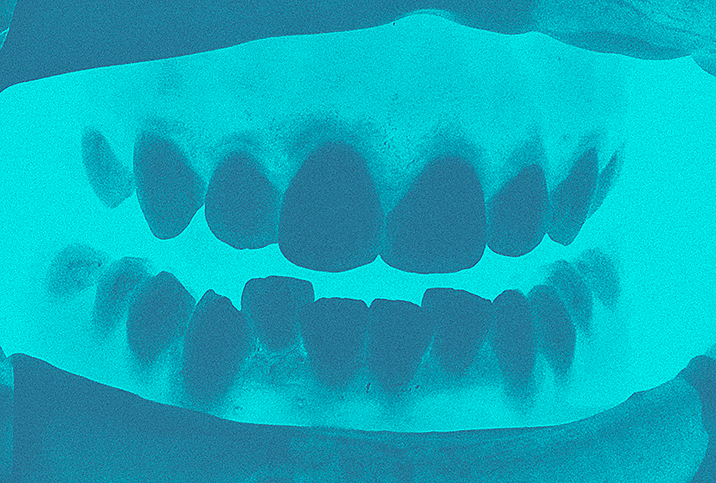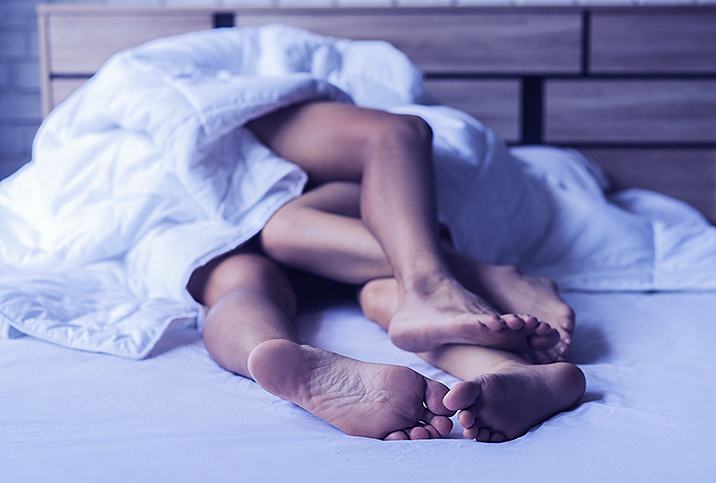What to Know About Teeth Grinding

An estimated 5 percent of the U.S. population regularly and aggressively grinds their teeth when they sleep, and sometimes during the day as well. For many, the habit is just a headache, but for others, it can be much more serious.
An overview of bruxism
Bruxism involves the clenching, gnashing and/or grinding of the teeth, either during the day (awake bruxism) or during sleep (sleep bruxism). Bruxism is a parasomnia—that is, a disorder that causes abnormal behavior during sleep. And it can be loud; often, it's loud enough to wake a partner and that's most often how it's discovered. Some individuals with sleep bruxism also grind their teeth during the day, albeit for the most part unknowingly.
The causes of bruxism are unknown, but certainly, awake bruxism has been linked to anxiety, stress, frustration and tension; sleep bruxism has been linked to a chewing behavior associated with arousals during sleep. Jaw abnormalities such as an incorrect bite and missing or crooked teeth can also cause the behavior.
The main risk factors for night bruxism are obstructive sleep apnea, anxiety, heavy alcohol use, loud snoring, caffeine intake, smoking and highly stressful life circumstances. Other factors that should be considered include:
- Being young
- Having an aggressive, competitive or hyperactive personality type
- Taking certain prescribed medications, such as antidepressants and antipsychotics
- A family history of bruxism
- A history of medical disorders, including Parkinson's disease, dementia, gastroesophageal reflux disease (GERD), epilepsy, night terrors, sleep apnea and attention deficit hyperactivity disorder (ADHD)
Health impacts
Frequent bruxism can result in morning tension-like headaches, jaw pain and problems such as temporomandibular disorders (TMD), as well as incidental damage to teeth, restorations or crowns. Tooth enamel can be worn down, creating increased sensitivity or pain. In some extreme cases, teeth are reduced to stumps, creating a tremendous negative impact on self-confidence.
Jaw issues can be severe enough that people have pain moving their jaws and difficulty fully opening their mouth.
Having sleep bruxism increases the risk for other sleep disorders, including sleep apnea and snoring. Some people even wake themselves up with the sound and actions of their teeth grinding, and that leads to disturbed sleep patterns and daytime sleepiness.
Professional assessment
It's important to see a dentist about your teeth grinding as soon as you realize that's what you're doing. Your dentist can make recommendations to protect your teeth as well as correct any damage you've done. A suggestion might be that you wear a protective nightguard when you sleep; there are multiple styles—some are fitted, some create separation between the top and bottom jaw, placing them in safe alignment. It's possible to purchase a nightguard online, but one that's ordered through your dentist will ensure a perfect fit.
Schedule regular dental checkups to monitor progress. A sleep-medicine specialist can run tests to determine if you have developed other potential sleep disorders such as sleep apnea. Your primary care doctor can also review your medication list to identify any that may be exacerbating your issues.
Active treatment
Medical treatments for bruxism aren't typically necessary. While the condition is prevalent in children—15 to 33 percent of kids grind their teeth—most outgrow the habit. For adults, though, a nightguard and lifestyle changes are often required to correct the issue.
Muscle relaxants, Botox injections and anti-anxiety medications can be prescribed to prevent teeth grinding. Physical therapy and self-massage to relax jaw muscles can also be helpful. Dental causes, such as having an improper bite, may be corrected by a dentist or oral surgeon, and surgeries for TMD include arthrocentesis, arthroscopy and open joint surgery.
Reducing or preventing teeth grinding
One of the easiest ways you can cut down on teeth grinding is to create a calming sleep environment and practice good sleep hygiene. To minimize stress, try doing something relaxing before bedtime, such as practicing meditation or yoga, reading something light, sipping a bedtime decaffeinated tea, or taking a warm bath or shower.
Definitely reduce screen time and avoid caffeine, alcohol and smoking within several hours of going to bed. Holding a warm washcloth on your jaw may also help reduce the risk of teeth grinding.
Try to be aware of any teeth clenching you do unconsciously during the day. Cut down on foods that require a significant amount of jaw work and, although this may seem obvious, don't chew gum.
Eat a balanced diet high in vegetables and get plenty of magnesium, vitamin B5, vitamin C and calcium.
Over-the-counter pain medications including ibuprofen, acetaminophen and naproxen can help with headaches and jaw pain, as can heat and cold packs. In the morning, consider a regimen of jaw stretches to loosen up tight muscles.
Consult your primary healthcare provider about other therapies that may reduce pain including trigger point injections, radio wave therapy, low-level laser therapy and transcutaneous electrical nerve stimulation (TENS) therapy. Cognitive behavioral therapy with biofeedback can also help individuals with bruxism.
















